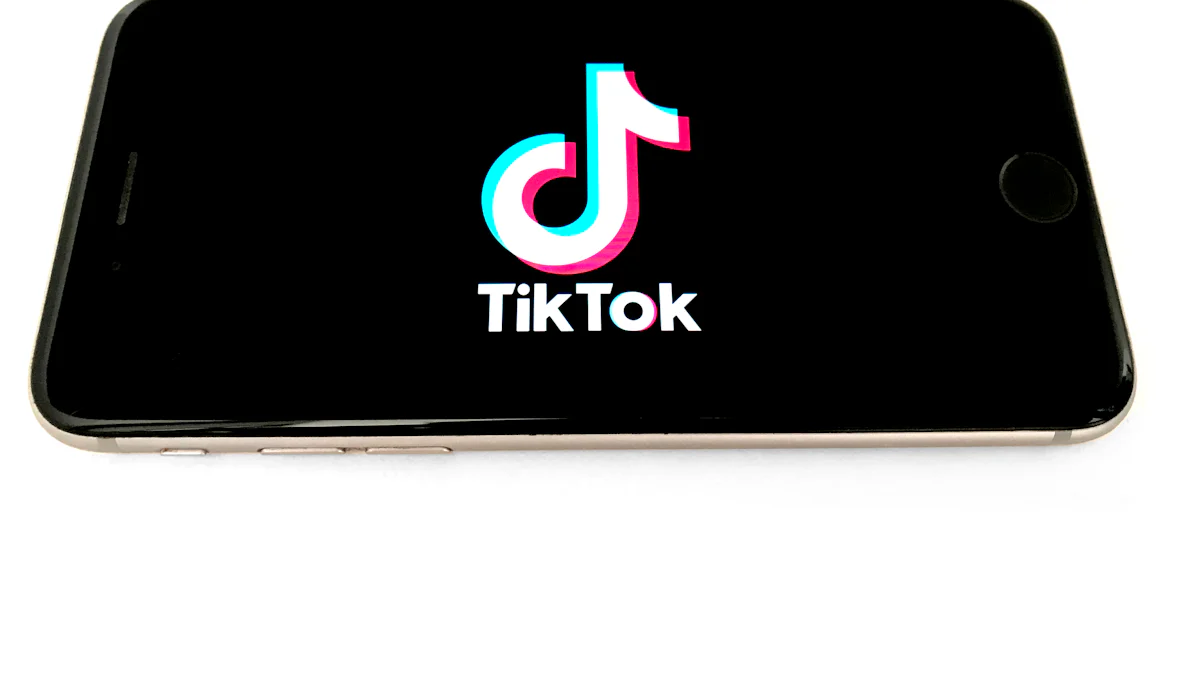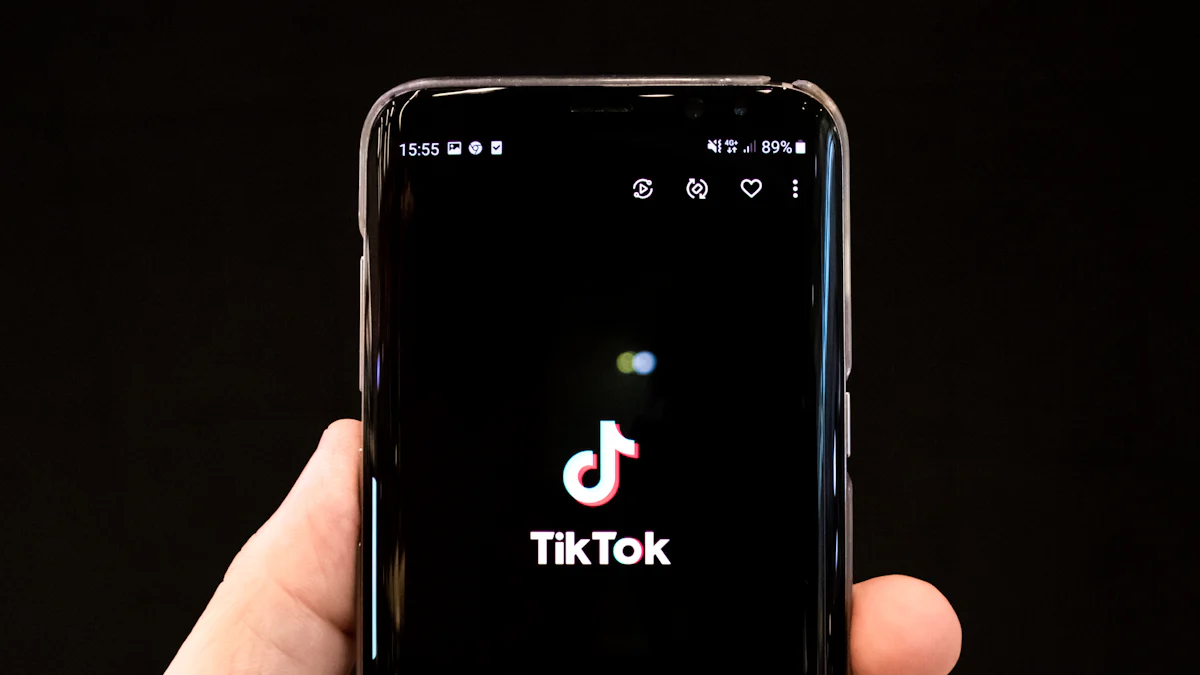Tracing TikTok's Path to Social Media Dominance

TikTok has taken the world by storm, rapidly ascending to become a social media giant. You might wonder, what year did TikTok come out? It launched in 2016 and quickly became a global trendsetter. With over a billion monthly active users, TikTok stands as the fifth most popular social media platform worldwide. Its unique algorithm and engaging short-form videos have reshaped how you interact with social media. TikTok's influence extends beyond just numbers; it has sparked viral trends and inspired creativity across the globe, making it a true powerhouse in the digital landscape.
Origins of TikTok

What Year Did TikTok Come Out?
You might be curious about what year did TikTok come out. Well, TikTok first appeared on the scene in 2016. The Chinese technology company ByteDance launched it under the name Douyin for the Chinese market. This app quickly gained traction, and ByteDance saw its potential for global appeal. By 2017, TikTok had already started to make waves internationally, setting the stage for its future success.
Acquisition of Musical.ly
In a strategic move, ByteDance acquired Musical.ly in November 2017 for around $1 billion. Musical.ly was a popular app known for its lip-syncing videos, and it had already captured the attention of many young users. By acquiring Musical.ly, ByteDance not only expanded its user base but also integrated the app's features into TikTok. This merger played a crucial role in TikTok's rapid growth, as it combined the best elements of both platforms.
Rebranding and Global Expansion as TikTok
After the acquisition, ByteDance rebranded Musical.ly as TikTok in August 2018. This rebranding marked the beginning of TikTok's global expansion. The app's unique algorithm, which prioritizes trending content, allowed users to discover videos from accounts they didn't follow. This feature contributed significantly to TikTok's popularity. By 2018, TikTok had surpassed major platforms like Facebook, Instagram, YouTube, and Snapchat in monthly installs. It became the most downloaded app in the US that year, solidifying its position as a global trendsetter.
TikTok's journey from its inception to becoming a household name is a testament to ByteDance's strategic vision and the app's innovative features. As you explore TikTok, you'll see how it continues to evolve and shape the social media landscape.
Key Success Factors
TikTok's rise to social media dominance didn't happen by accident. Several key factors contributed to its success, making it a favorite among Gen Z and influencers alike. Let's dive into what makes TikTok tick.
The Power of TikTok's Algorithm
You might wonder why TikTok feels so addictive. The secret lies in its powerful algorithm. Unlike other platforms, TikTok's algorithm quickly learns your interests. It doesn't just rely on who you follow. Instead, it predicts what you'll engage with based on your viewing habits. This means you get a personalized feed filled with content you love. TikTok's algorithm is especially effective at putting content in front of people who are most likely to enjoy it. This allows diverse content to go viral, giving creators more opportunities to shine. The algorithm's ability to evolve ensures you always see fresh and engaging videos, making binge-watching irresistible.
User Engagement and Community Building
TikTok isn't just about watching videos; it's about being part of a community. The platform encourages user engagement through features like duets and challenges. You can easily interact with other users, creating a sense of belonging. This community-driven approach has made TikTok a hub for Gen Z, who value connection and creativity. Influencers thrive on TikTok because they can engage directly with their audience. This direct interaction fosters loyalty and builds a strong community around shared interests and trends.
The Role of Music and Viral Trends
Music plays a crucial role in TikTok's appeal. The platform's vast library of songs allows you to add the perfect soundtrack to your videos. This feature has led to the creation of countless viral trends, as users put their unique spin on popular songs. TikTok's emphasis on music has not only boosted its popularity but also influenced the music industry. Songs that go viral on TikTok often climb the charts, showcasing the platform's power to shape cultural trends. For Gen Z, TikTok is a place to discover new music and participate in the latest viral challenges, making it an essential part of their social media experience.
Financial Impact and Market Position
TikTok's financial journey has been nothing short of remarkable. You might be curious about how TikTok, a platform that started as a simple app, has become a financial powerhouse. Let's explore the monetization strategies that have fueled its growth and how it stacks up against other social media giants.
Monetization Strategies
TikTok has mastered the art of monetization. The platform's revenue has skyrocketed, with projections estimating it will generate a staggering $18.49 billion in 2024. This growth is largely driven by its innovative advertising strategies. TikTok offers brands a unique way to connect with its vast user base through targeted ads and partnerships with influencers. These collaborations not only boost brand visibility but also drive engagement.
You might wonder how TikTok's ad revenue has grown so rapidly. In 2023, TikTok generated an impressive $16.1 billion in revenue, marking a 67% increase from the previous year. This meteoric rise is a testament to TikTok's ability to leverage its user engagement and deliver ads that resonate with its audience. By 2025, TikTok's ad revenue could potentially reach $25.6 billion, showcasing its continued potential for growth.
Comparison with Other Social Media Platforms
When you compare TikTok to other social media platforms, its market position becomes even more impressive. TikTok has quickly become one of the most downloaded apps globally, surpassing established giants like Facebook and Instagram in terms of monthly installs. This achievement highlights TikTok's appeal, especially among younger audiences who crave fresh and engaging content.
ByteDance, the parent company of TikTok, has strategically positioned the app to compete with other social media platforms. TikTok's unique algorithm and focus on short-form video content set it apart from its competitors. While platforms like Facebook and Instagram have tried to replicate TikTok's success by introducing similar features, TikTok remains a leader in innovation and user engagement.
Evolution of Short-Form Video Content

TikTok has revolutionized the way you think about content creation. This shortform video app has made it easier than ever for you to express yourself creatively. You don't need fancy equipment or a big budget. All you need is your smartphone and a spark of creativity. TikTok's format encourages you to experiment with different styles, effects, and music. This freedom has led to a surge in unique and diverse content. Creators like Monique, who started the TikTok channel Skinfiltrator, have found a supportive community on the platform. She said TikTok was the "only social platform where I've really felt support." This sense of community is invaluable for creators looking to break into the industry.
Influence on Content Creation
TikTok's influence on content creation is undeniable. The platform has democratized the creative process, allowing anyone to become a creator. You can share your passions, talents, and stories with a global audience. TikTok's algorithm helps your content reach people who will appreciate it, even if they don't follow you. This means your videos have the potential to go viral, giving you exposure and recognition. Jorge Ruiz, a TikTok creator, highlights how creators on the platform embody authenticity and relatability. They connect with viewers through shared experiences and interests, driving real business value. This genuine connection is what sets TikTok apart from other platforms.
Impact on Competing Platforms
TikTok's success has not gone unnoticed by other social media giants. Platforms like Facebook and Instagram have scrambled to keep up with TikTok's innovative approach to short-form video content. They've introduced similar features, such as Instagram Reels and Facebook's short videos, to retain users. However, TikTok remains a leader in this space. Its unique algorithm and community-driven approach continue to attract new users. As a result, TikTok has reshaped the social media landscape, forcing competitors to adapt and innovate. This competition benefits you, as it leads to more creative and engaging content across all platforms.
Data Privacy Concerns and Political Implications
TikTok's rapid rise has not been without its share of controversies, especially concerning data privacy and political implications. As a user, you might wonder about the safety of your personal information on the platform. Let's dive into the accusations and how TikTok has responded to these concerns.
Accusations and Controversies
TikTok, owned by the Chinese company ByteDance, has faced numerous accusations regarding data privacy. Critics have raised concerns about the app collecting sensitive data and potentially sharing it with the Chinese government. India and the US have been particularly vocal, expressing worries about TikTok's data collection practices and the possibility of it being used for spying purposes.
FBI Director Raises National Security Concerns About TikTok: The FBI has warned about potential Chinese influence operations through the app, highlighting national security risks.
The Federal Trade Commission (FTC) is investigating TikTok's data and security practices. Concerns include user data access by individuals in China. Lawmakers argue that TikTok's data privacy issues reflect a larger problem across social media platforms. They emphasize the need for broader data security measures.
TikTok's Responses and Measures
In response to these accusations, TikTok has taken steps to address data privacy concerns. The company aims to offer transparency regarding its data collection practices. TikTok has committed to storing US user data on US-controlled cloud servers. This move is part of their effort to reassure users and regulators about data security.
TikTok has also engaged in discussions with US companies like Oracle and Walmart to form partnerships that could alleviate national security concerns. However, some critics argue that these deals do not fully address the core issues.
ByteDance, TikTok's parent company, continues to navigate these challenges while maintaining its global presence. As a user, you can expect TikTok to keep evolving its policies to ensure a safer experience. The platform remains under scrutiny, but it strives to balance innovation with user privacy.
TikTok's Current Position and Future Prospects
TikTok has firmly established itself as a dominant force in the social media landscape. Its journey from a simple app to a global phenomenon has been nothing short of extraordinary. However, with great success comes increased scrutiny and challenges. Let's explore what TikTok faces today and what the future might hold for this social media giant.
Ongoing Scrutiny and Challenges
As TikTok continues to grow, it finds itself under the microscope. Concerns about data privacy and national security have been persistent. Governments worldwide, including the United States and India, have raised questions about how TikTok handles user data. These concerns have led to investigations and even temporary bans in some regions. You might wonder how TikTok navigates these challenges. The company has taken steps to address these issues by enhancing transparency and collaborating with local partners to store data securely. Despite these efforts, TikTok remains under constant scrutiny, and it must continue to adapt to regulatory changes to maintain its global presence.
Another challenge TikTok faces is the fierce competition from other social media platforms. Giants like Facebook and Instagram have introduced features similar to TikTok's short-form videos to retain their user base. This competition pushes TikTok to innovate continuously and keep its content fresh and engaging. As a user, you benefit from this rivalry, as it leads to more creative and diverse content across all platforms.
Potential for Continued Growth
Despite the challenges, TikTok's potential for growth remains strong. Experts predict that the number of TikTok users will continue to rise, albeit at a slower pace. By 2029, TikTok could boast a staggering 2.35 billion users worldwide. This growth reflects TikTok's ability to attract new users and retain its existing audience. The platform's appeal to Gen Z plays a significant role in its continued success. Gen Z values authenticity and creativity, and TikTok provides the perfect space for them to express themselves. With over 1 million creators on the platform, TikTok offers endless opportunities for influencers to connect with their audience and build their brand.
The rise of influencer marketing on TikTok further fuels its growth. More than 100,000 influencers use TikTok as their primary job, and this number is expected to increase. As TikTok evolves, it will likely introduce new features and monetization strategies to support creators and enhance user engagement. This evolution ensures that TikTok remains a vital part of the social media ecosystem.
TikTok stands tall as a social media giant, captivating over 1.582 billion monthly active users worldwide. Its engaging content and innovative features keep you coming back for more. The platform's algorithm plays a pivotal role in delivering personalized experiences, ensuring you always find something intriguing. TikTok's diverse user base spans various age groups and regions, making it a powerful tool for global outreach and marketing. As TikTok continues to evolve, it faces ongoing scrutiny regarding data privacy. However, its potential for growth remains strong, promising exciting developments in the social media landscape.
FAQ
What makes TikTok different from other social media platforms?
TikTok stands out with its unique algorithm that curates content based on your interests. It doesn't just show you videos from people you follow. Instead, it introduces you to new creators and trends, making your feed dynamic and engaging. The focus on short-form videos encourages creativity and quick consumption, setting it apart from platforms like Facebook and Instagram.
How does TikTok's algorithm work?
TikTok's algorithm analyzes your interactions, such as likes, shares, and watch time, to understand your preferences. It then suggests videos that align with your interests. This personalized approach keeps you engaged and ensures you discover content you'll enjoy, even from creators you don't follow.
Is TikTok safe for kids?
TikTok offers features like Family Pairing, which allows parents to link their accounts with their children's. This feature helps you manage screen time, restrict content, and control direct messages. While TikTok provides these tools, it's essential to have open conversations with your kids about online safety.
Can you make money on TikTok?
Yes, TikTok offers several ways to earn money. You can join the TikTok Creator Fund, collaborate with brands for sponsored content, or receive gifts from fans during live streams. Building a strong following and engaging with your audience increases your earning potential.
How do you go viral on TikTok?
Going viral on TikTok involves creating engaging and relatable content. Use trending sounds and hashtags to increase visibility. Consistency is key, so post regularly and interact with your audience. Authenticity resonates with viewers, so be yourself and have fun with your content.
What are TikTok challenges?
TikTok challenges are user-generated trends that encourage you to create videos based on a specific theme or task. These challenges often involve music, dance, or creative storytelling. Participating in challenges can boost your visibility and help you connect with the TikTok community.
How does TikTok handle data privacy concerns?
TikTok has implemented measures to address data privacy concerns. The platform stores US user data on US-controlled servers and collaborates with companies like Oracle to enhance security. TikTok continues to update its policies to ensure transparency and protect user information.
Can you use TikTok for business?
Absolutely! TikTok offers a unique platform for businesses to reach a younger audience. You can create engaging content, collaborate with influencers, and use TikTok Ads to promote your products or services. The platform's creative tools allow you to showcase your brand in innovative ways.
How do you start a TikTok account?
Starting a TikTok account is simple. Download the app, sign up using your email, phone number, or social media account, and create a username. Once you're in, explore the app, follow creators, and start making your own videos. TikTok's user-friendly interface makes it easy to get started.
What are TikTok's future prospects?
TikTok's future looks promising, with continued growth expected. The platform plans to introduce new features and monetization strategies to support creators and enhance user engagement. As TikTok evolves, it will likely remain a significant player in the social media landscape, offering exciting opportunities for users and businesses alike.
See Also
10 Inspiring Success Stories From TikTok Influencers
A Beginner's Guide to TikTok Influencer Marketing
The Advantages and Disadvantages of TikTok Influencer Marketing
